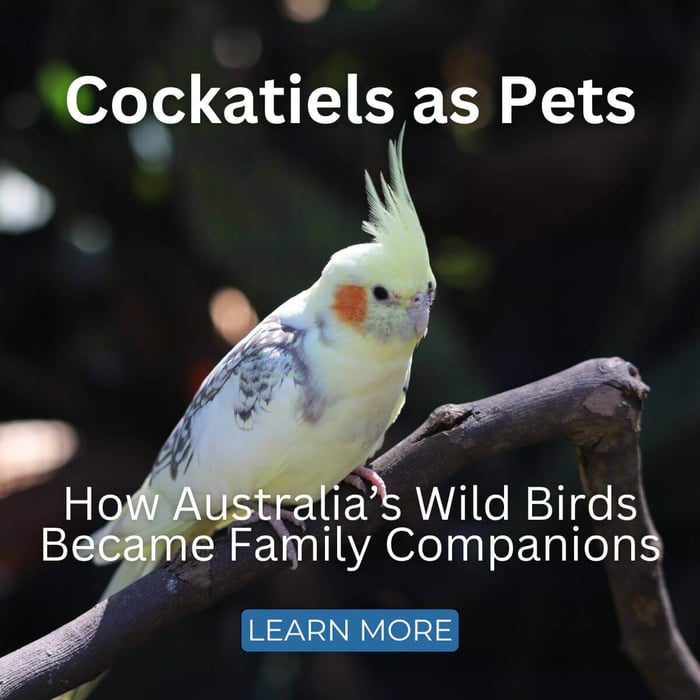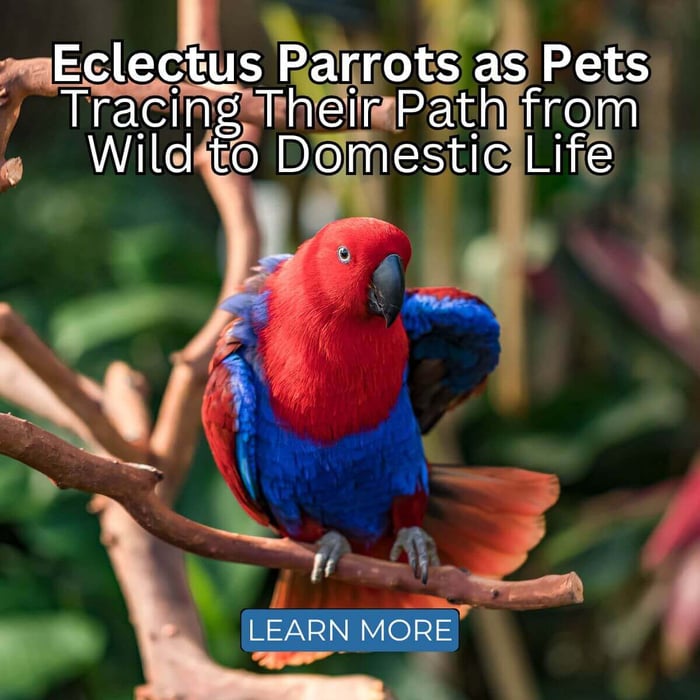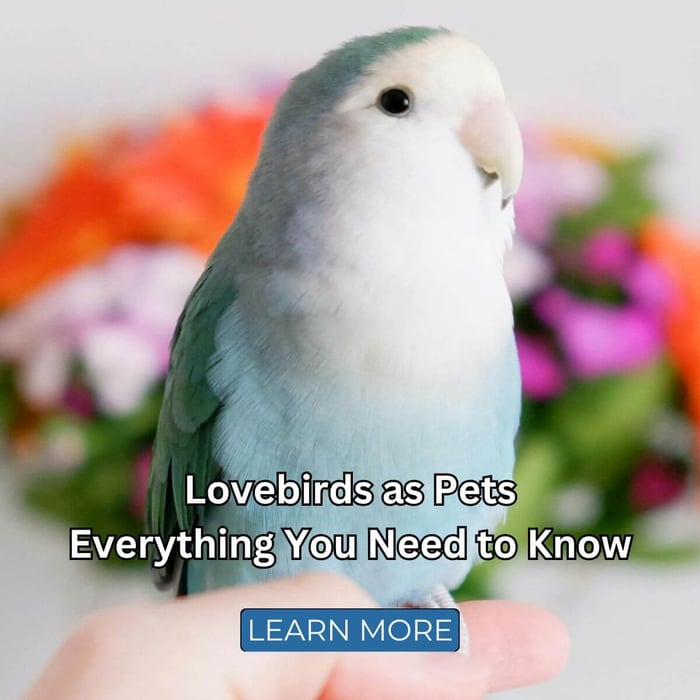The Fascinating History of Conures as Pets: From the Wild to Our Homes
20 June is Conure Day, a perfect time to celebrate and reflect on the rich history of conures as pets. In short, conures have been kept as pets for centuries, admired for their colourful feathers, lively personalities, and ability to form strong bonds with humans. But when did people first begin keeping conures as pets, and how did these beautiful birds make their way into our homes? This article explores the origins, rise in popularity, the lasting appeal of conures as pets and how to care for them as wonderful companions.
The Origins of Conures as Pets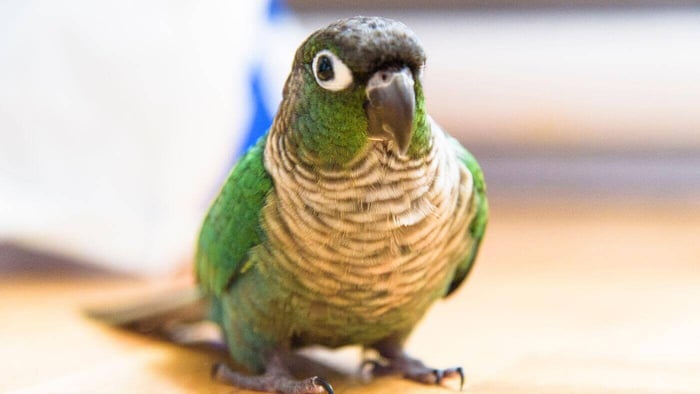
A conure is a small to medium-sized parrot native to Central and South America. In short, conures have a history stretching back hundreds of years. Indigenous peoples of the Amazon, Andes, and surrounding regions kept these vibrant birds both for companionship and for their striking feathers, which were used in ceremonial clothing and decorations.
Conures belong mainly to the Aratinga and Pyrrhura genera. Their intelligence, playful nature and vocal abilities made them popular among native communities. Keeping conures as pets began as part of this deep respect for the natural world and the connection between people and animals.
Conures and European Exploration
The history of conures as pets took a new turn during the 15th and 16th centuries when European explorers arrived in the Americas. These travellers were fascinated by the exotic wildlife they encountered, including the brightly coloured conures. The parrots' cheerful personalities and striking appearance led explorers to bring them back to Europe as living treasures.
In summary, conures became highly prized in European aristocratic circles. They symbolised wealth, sophistication, and a connection to distant lands. Conures often appeared in paintings, perched alongside their owners, reflecting their status as beloved and prestigious pets.
The Rise in Popularity of Conures as Pets
As global trade expanded, so did the popularity of conures as pets. By the 18th and 19th centuries, these parrots were no longer limited to royal aviaries or the homes of the wealthy. Improvements in shipping, animal welfare, and avian care meant that conures became accessible to more people.
In short, conures became favourites for individuals and families seeking a pet that was intelligent, colourful, and sociable. The 20th century brought further advances in avian medicine, responsible breeding, and understanding of parrot behaviour, helping conures become one of the most popular pet parrot types worldwide.
Why Conures Make Such Popular Pets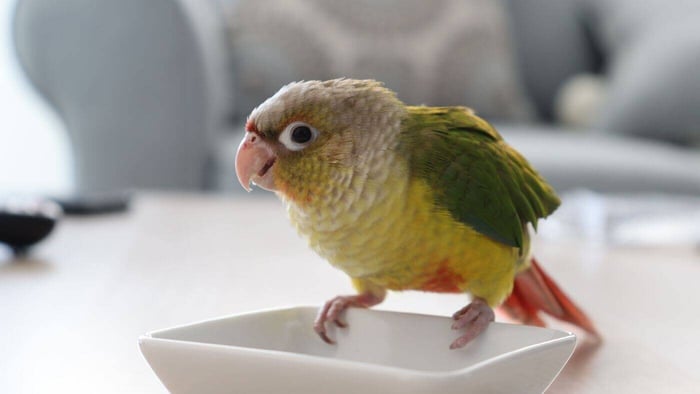
There are many reasons why conures are so beloved by bird enthusiasts:
- Affectionate nature – Conures are known for their affectionate personalities, forming deep and enduring bonds with their owners. They thrive on regular interaction and companionship, often seeking out their human friends for attention and love.
- Intelligence – These intelligent parrots are remarkably quick learners, showcasing their cleverness by mastering an array of tricks and puzzles. Their ability to mimic sounds and even human speech adds to their charm, making them delightful companions who can engage with their owners in playful conversation.
- Manageable size – Striking a perfect balance in size, conures are larger than budgies yet smaller than macaws, making them ideal companions for various living spaces. Their compact form allows them to comfortably fit into homes while still being large enough to deliver a big personality.
- Vivid colours – Adorned in a stunning array of bright, iridescent feathers, conures are a visual delight. Their vibrant plumage, which features a palette of greens, yellows, reds, and blues, captures attention and brings a splash of joy to any environment.
- Playful and curious – With their playful nature and insatiable curiosity, conures are always eager to explore their surroundings. They engage enthusiastically with toys, often turning playtime into spirited adventures, and readily interact with the people around them, showcasing their lively and exuberant spirit.
In short, conures combine beauty, personality, and companionship in a way few other birds can match. However, their intelligence and social needs mean they require time, attention, and mental stimulation to remain happy and healthy.
How to Care for Conure
In short, caring for conures as pets means providing them with a stimulating, safe, and loving environment. Here are some key aspects of good conure care:
- Housing – Conures need a spacious cage that allows them to stretch their wings and climb. The cage should contain perches, ladders, and toys for enrichment. Out-of-cage time daily is essential for exercise and mental well-being.
- Diet – A healthy diet for conures includes high-quality pellets, fresh vegetables, fruit in moderation, and occasional seeds or nuts as treats. A balanced diet supports their overall health and vibrant plumage.
- Social interaction – Conures are highly social parrots that need daily interaction with their owners. They enjoy playing, training, and simply spending time with their human companions.
- Mental stimulation – Offer a variety of toys, foraging opportunities, and training sessions to keep your conure's mind active. Rotate toys regularly to maintain interest.
- Health checks – Regular vet visits are important for early detection of potential health issues. Watch for signs of illness, such as changes in behaviour, appetite, or feather condition.
By providing proper care, owners can enjoy many happy years with their conure. These parrots can live 20 years or more with the right environment and attention.
The Many Varieties of Conures as Pets
Another reason for the lasting popularity of conures as pets is the variety of species available, each with its own charm:
- Green-cheeked Conure – A quieter conure with a gentle, affectionate nature, ideal for those in smaller homes.
- Sun Conure – Known for its vibrant yellow and orange plumage and lively, outgoing personality.
- Jenday Conure – Similar to the Sun Conure but with more green in its feathers; playful and sociable.
- Nanday Conure – Recognised by its black facial mask, vocal, curious, and full of energy.
- Blue-crowned Conure – A gentle, intelligent parrot known for its distinctive blue head and quieter voice.
- Peach-fronted Conure – A smaller species with peach colouring on its forehead; independent and inquisitive.
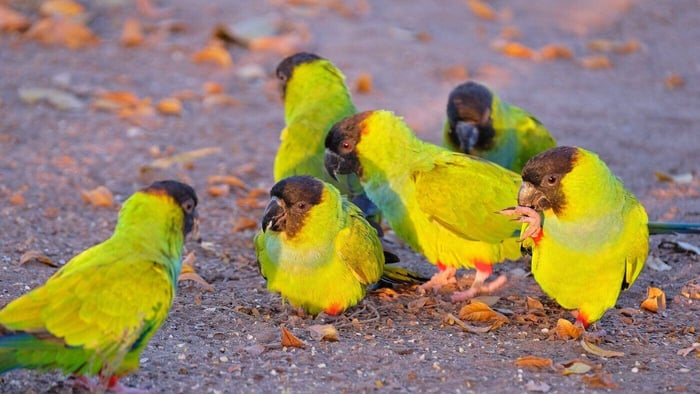 There is a conure species to suit nearly every household and lifestyle. Whether you want a quieter companion or an outgoing, chatty pet, conures offer a wonderful range of options.
There is a conure species to suit nearly every household and lifestyle. Whether you want a quieter companion or an outgoing, chatty pet, conures offer a wonderful range of options.
The Enduring Appeal of Conures as Pets
The story of conures as pets is one of centuries of admiration and connection. From their beginnings as companions to Indigenous peoples to their status as prized pets in European courts to their role today as much-loved members of households around the world, conures have long captured human hearts.
As we recognise Conure Day on 20 June, it is a fitting time to appreciate the history, diversity, and joy that conures as pets continue to bring. Their intelligence, affection, and beauty ensure that conures will remain popular companions for generations to come.
FAQs
What is Conure Day and when is it celebrated?
Conure Day is celebrated on 20 June each year. It’s a day to appreciate the history, diversity, and charm of conures as pets.
Where do conures come from originally?
Conures are native to Central and South America, where they have lived for centuries among indigenous communities.
Why are conures popular as pets?
Conures are loved for their affectionate nature, intelligence, vivid colours, and playful personalities. They form strong bonds with their owners and thrive on social interaction.
How long do conures live as pets?
With good care, conures can live for 20 years or more, making them a long-term companion.
What do conures need in their diet?
A healthy conure diet includes high-quality pellets, fresh vegetables, some fruit, and occasional seeds or nuts as treats.

